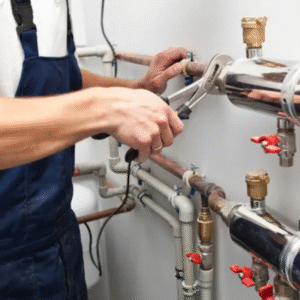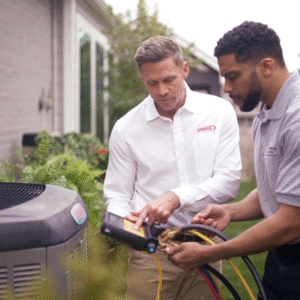
When your vehicle breaks down unexpectedly, the last thing you want is confusion about which towing service to call. Understanding the different types of tow trucks and their specific purposes can save time, reduce costs, and prevent further damage to your vehicle. Whether you’re stranded on the highway or dealing with a car that won’t start in your driveway, knowing the right tow truck for the job is essential.
Tow trucks are specialized vehicles designed to transport disabled, improperly parked, or damaged vehicles. They play a vital role in roadside assistance, vehicle recovery, and even in moving cars for service or repossession. However, not all tow trucks are the same, and choosing the wrong type can create unnecessary problems.
Flatbed Tow Trucks
Flatbed tow trucks, also known as rollback trucks, feature a large, flat platform that tilts or slides back to load vehicles. This design ensures that all wheels of the towed vehicle are off the ground, providing a safer and more stable transport. Flatbeds are ideal for luxury cars, sports cars, and vehicles with low clearance that could be damaged by a traditional hook-and-chain tow.
Flatbed tow trucks are highly versatile. They can transport motorcycles, small trucks, and even heavy machinery, making them a favorite among professional towing services. If you’re concerned about avoiding scratches or other damage, a flatbed tow truck is the safest choice.
Hook and Chain Tow Trucks
One of the oldest types of tow trucks, the hook and chain model, uses chains attached to a vehicle’s frame to lift it off the ground. While effective for moving cars short distances, this method can cause damage to modern vehicles with unibody frames or low-clearance bodies. Because of the potential for harm, hook and chain towing is less common today and often reserved for junk cars or vehicles heading to a salvage yard.
Tow trucks with hook and chain systems are usually less expensive than other types, but the trade-off is a higher risk of damage. If you own a modern or high-end vehicle, it’s wise to request an alternative towing method.
Wheel-Lift Tow Trucks
Wheel-lift tow trucks are an improvement on the hook and chain design, using a metal yoke to lift either the front or rear wheels of a vehicle. The remaining wheels stay on the ground, allowing the vehicle to be pulled safely behind the truck. This type of tow truck is popular for local towing, accident recovery, and situations where a flatbed may not be practical.
Wheel-lift towing reduces the risk of vehicle damage compared to hook and chain models. It is compatible with most cars, trucks, and SUVs, making it a versatile option for towing services. However, it’s not always ideal for long-distance transport, as leaving two wheels on the ground can cause wear.
Integrated Tow Trucks
Integrated tow trucks, also known as self-loading tow trucks, combine wheel-lift and boom systems into one powerful unit. These trucks are often used for repossessions, heavy-duty towing, and moving large vehicles like buses or delivery trucks. The integrated design allows the operator to pick up a vehicle without exiting the truck, making the process faster and safer.
For businesses that need to tow multiple vehicles efficiently, integrated tow trucks are a reliable choice. They can handle heavy loads and provide a secure transport option for difficult recoveries.
Boom Tow Trucks
Boom tow trucks use a hydraulic arm or crane to lift vehicles, making them ideal for emergency situations where a vehicle is stuck in a ditch or over a guardrail. The boom provides precise lifting control, which is essential for recovering vehicles from challenging locations. This type of tow truck is often used by roadside assistance providers and municipal towing services.
A boom tow truck is especially valuable when other methods aren’t feasible, such as accidents involving obstacles or uneven terrain. While less common for everyday towing, they are indispensable for complex recoveries.
Specialty Tow Trucks
Certain situations call for specialty tow trucks, such as heavy-duty rotator trucks, car carrier trucks, and motorcycle carriers. Heavy-duty tow trucks can handle semi-trucks, buses, and construction vehicles, while rotators can lift and rotate vehicles in tight spaces. Motorcycle carriers are designed to secure bikes safely for transport. Towing services that offer these specialized trucks can accommodate virtually any vehicle type or scenario.
If you own an oversized vehicle, a motorcycle, or a commercial truck, contacting a towing service with specialty tow trucks ensures your vehicle is transported safely and efficiently.
Choosing the Right Tow Truck
Selecting the right type of tow truck depends on your vehicle, its condition, and the towing distance. For modern, delicate, or high-end vehicles, flatbed tow trucks are usually the safest option. Wheel-lift trucks are ideal for short distances or local towing. Hook and chain trucks are generally best for older, less delicate vehicles or salvage situations. Integrated and boom tow trucks are designed for heavy-duty or emergency recoveries, while specialty tow trucks cater to unique transport needs.
When calling a towing service, it’s important to provide detailed information about your vehicle and the situation. A reputable towing service can then dispatch the appropriate truck, saving time and preventing unnecessary damage.
Why Understanding Tow Trucks Matters
Knowing the different types of tow trucks allows you to make informed decisions during stressful situations. It ensures your vehicle is handled correctly and reduces the risk of additional repairs. Professional towing services are trained to match the right truck with your vehicle, but having a basic understanding can streamline the process.
Additionally, understanding tow truck types can help you budget for towing costs. Different tow trucks require varying levels of equipment and labor, which can impact pricing. Being aware of your options helps you choose a service that offers both safety and affordability.
Conclusion
Tow trucks are more than just roadside assistance vehicles—they are lifelines for drivers facing unexpected breakdowns, accidents, or transport needs. From flatbeds and wheel-lifts to boom trucks and integrated models, each type of tow truck has a specific purpose and advantage. Understanding these differences ensures that you call the right towing service for your situation, protecting your vehicle and minimizing hassle.
The next time you find yourself in need of a tow, remember that not all tow trucks are created equal. By choosing the right tow truck, you can guarantee a safer, more efficient transport experience. Whether it’s a short-distance recovery or a complex vehicle retrieval, professional towing services are ready to provide the support you need—keeping you moving, no matter what.

